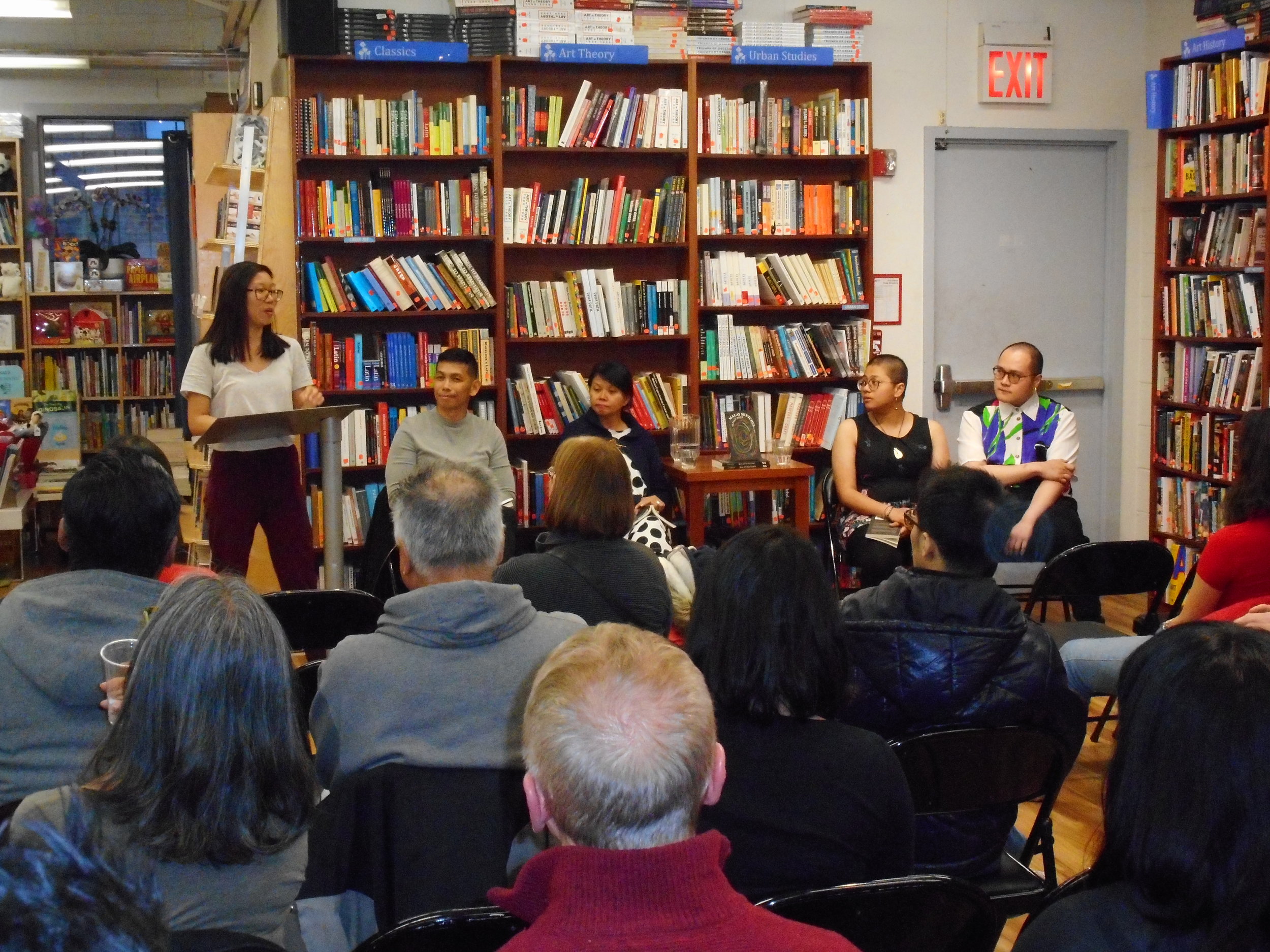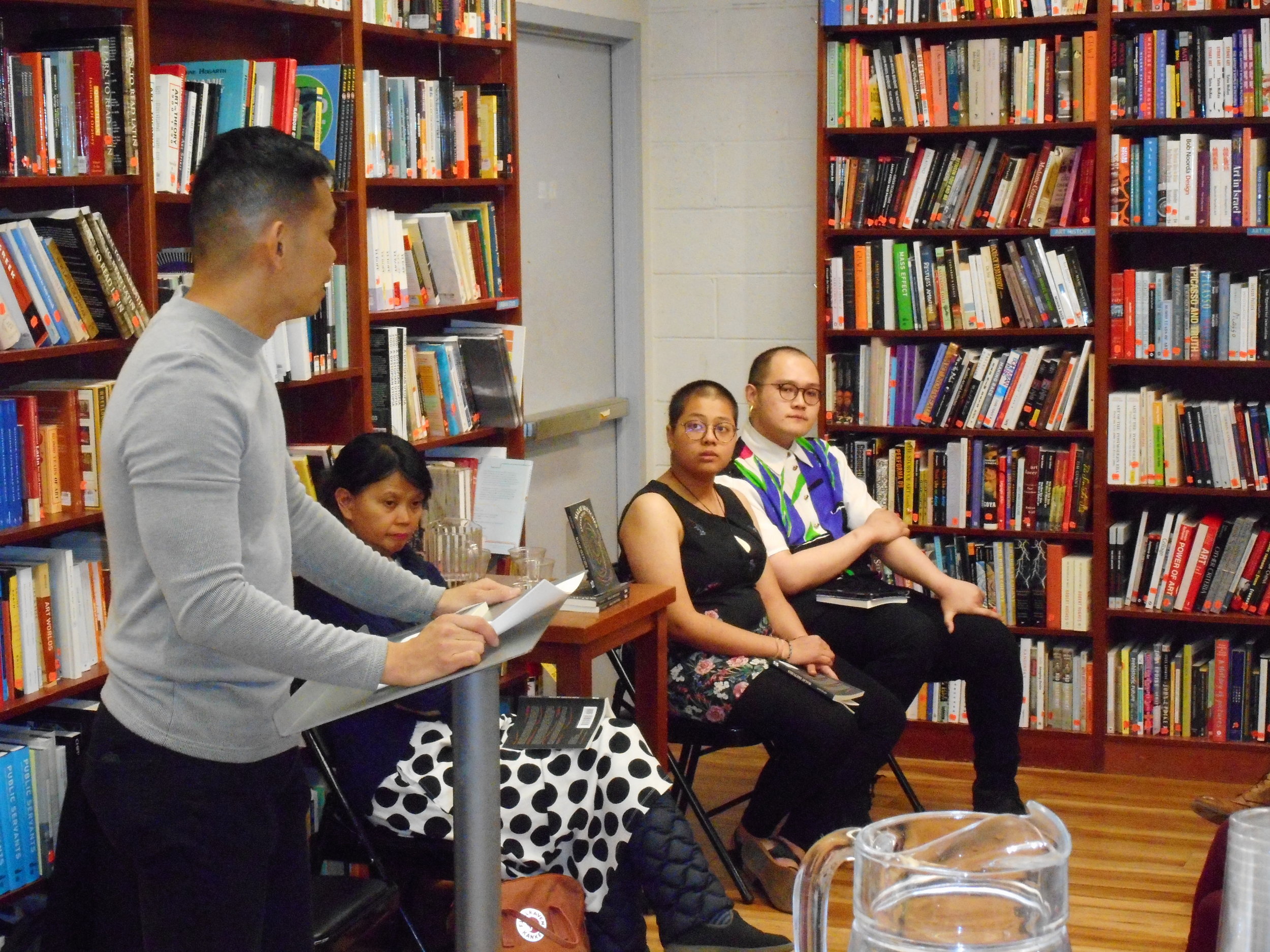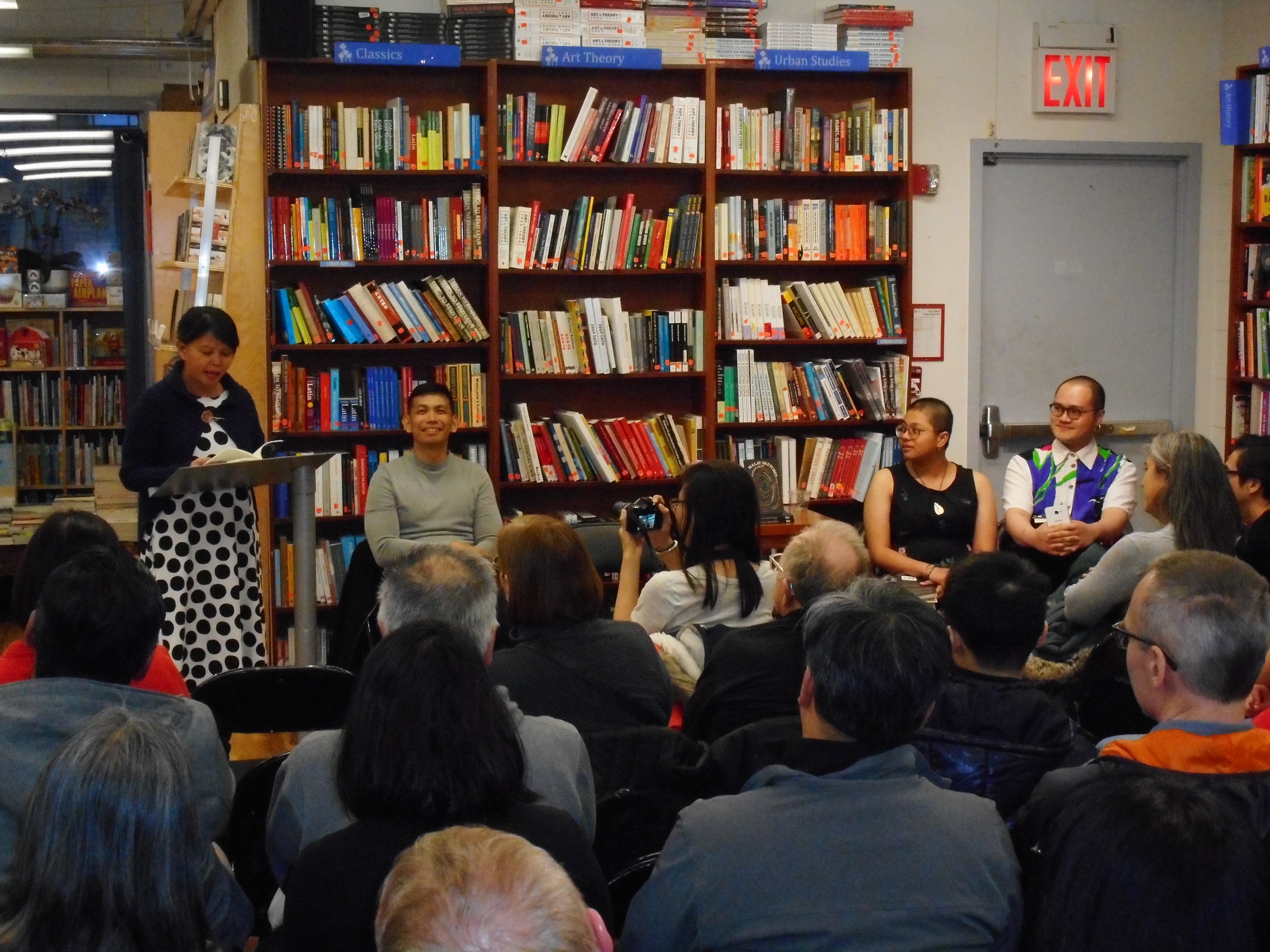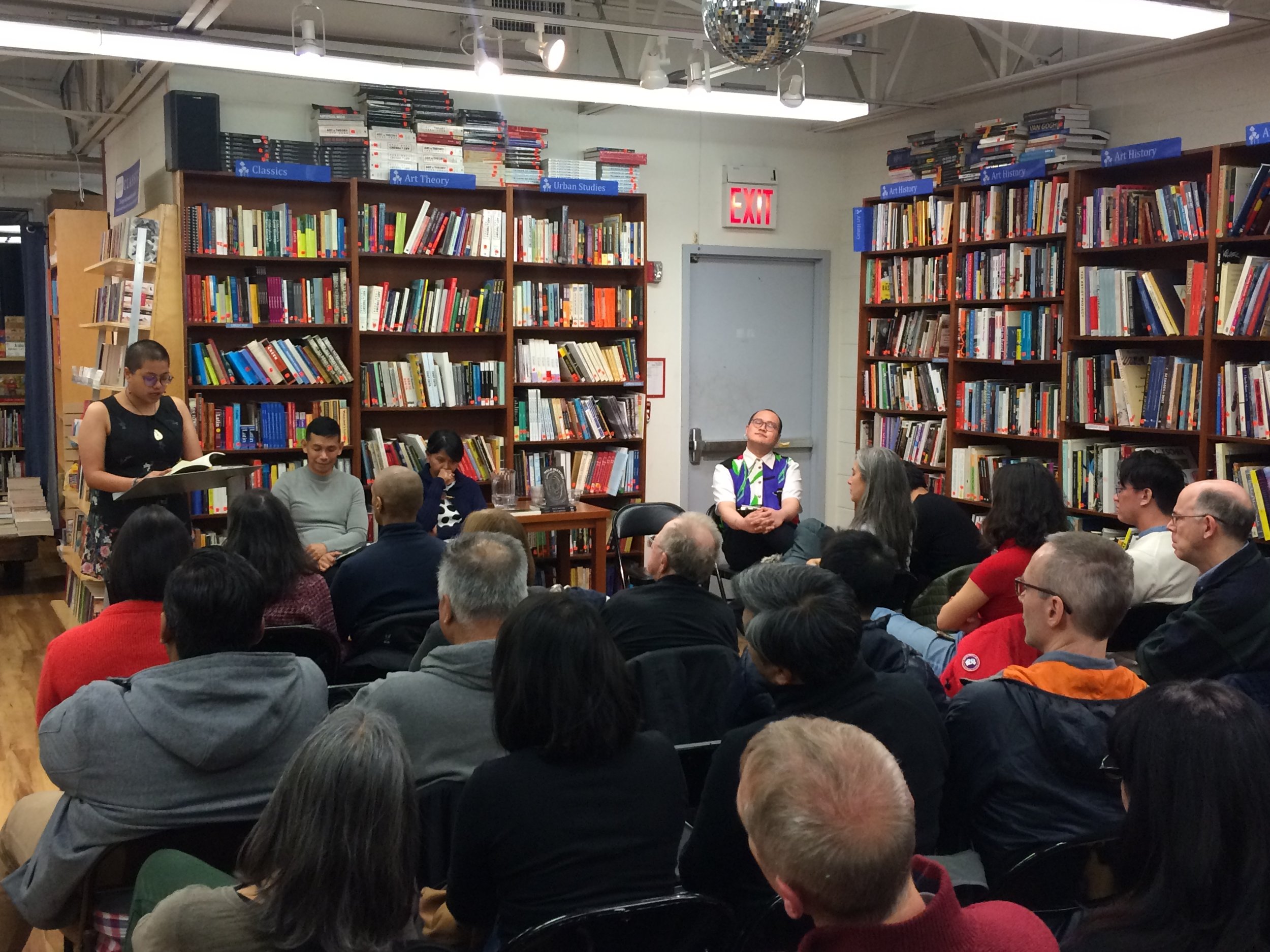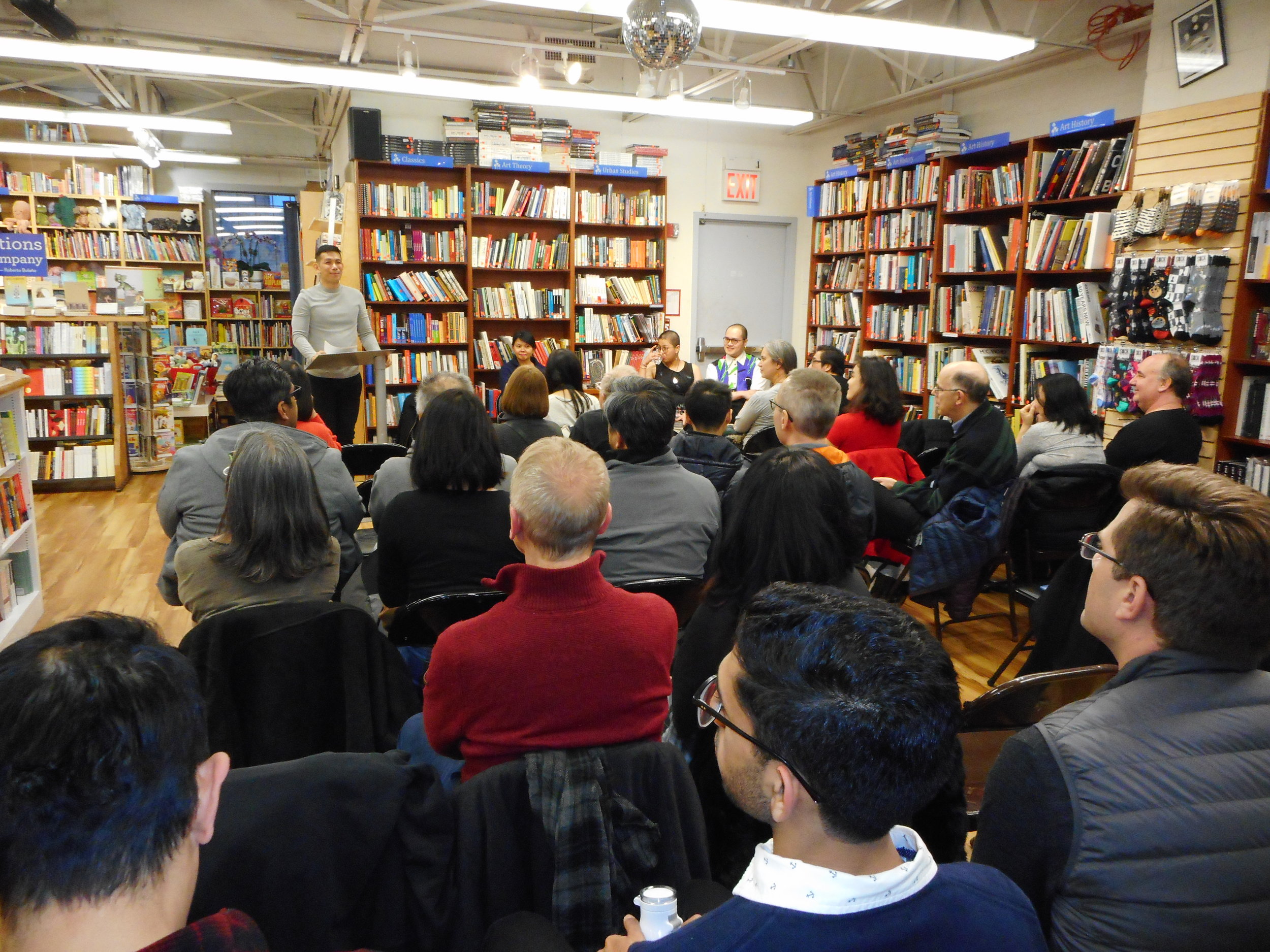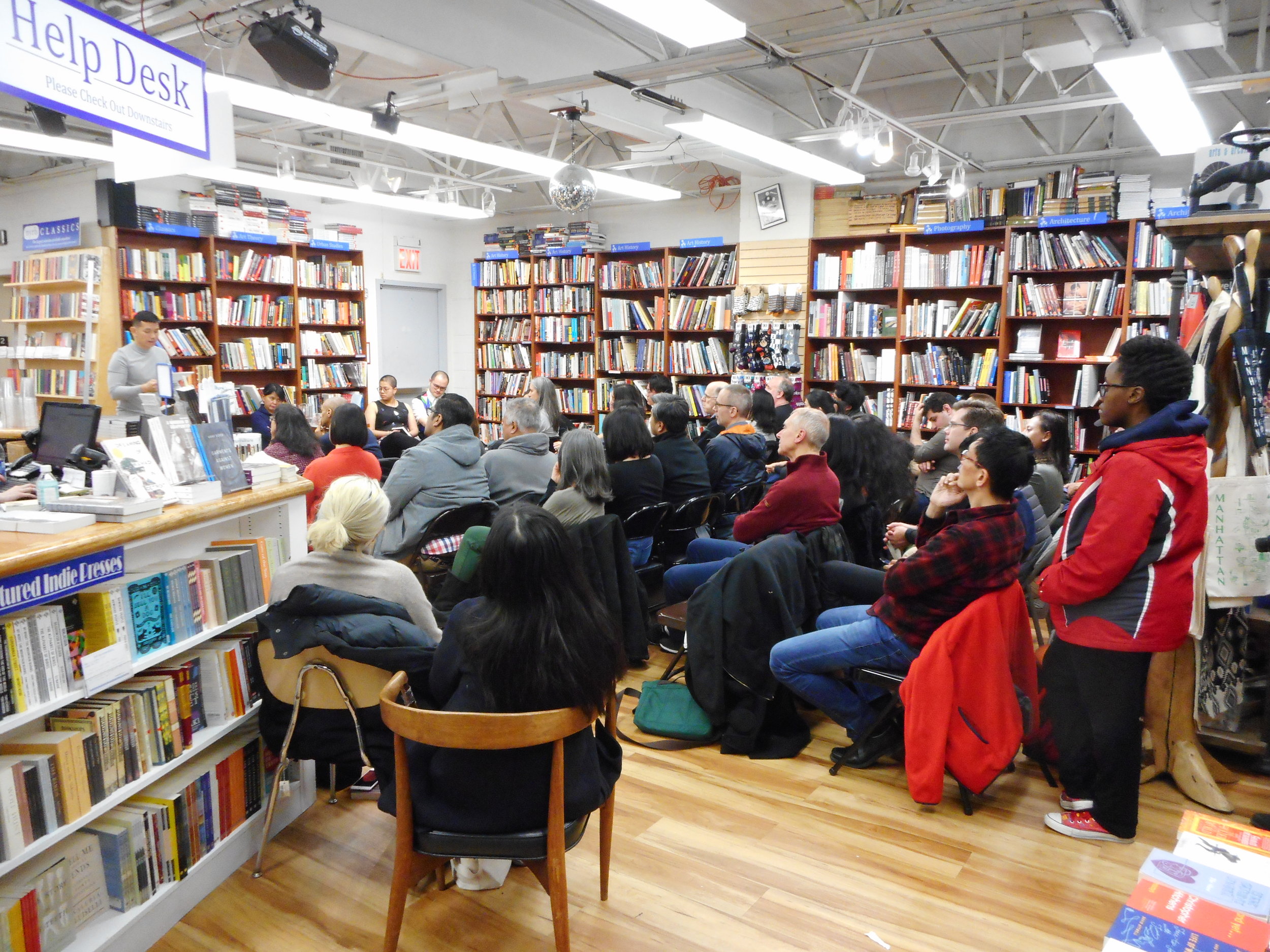Tragic Writing
After a wonderful event at Harlem's Revolution Books, our new imprint Gaudy Boy held another celebration of our release of Alfian Sa'at's short-story collection Malay Sketches at Book Culture on the Upper West Side last night. Kicking off the evening, Managing Editor Kimberley Lim spoke about Gaudy Boy and our mission to publish voices of Asian heritage. She also announced our new poetry book prize, to be judged by poet and artist Wong May.
Then award-winning Filipino-American novelist Gina Apostol read two stories from the collection, "Hantu Tetek" about a breast-squeezing ghost, and "Foreign Language" about a so-called East-West connection. Chinese-Singaporean playwright, Joel Tan, who was serendipitously in town, read "His Birthday Present." He was followed by Nur Sabrina bte Dzulkifli, the winner of the first Singapore Unbound Fellowship. She read "Shallow Focus" about a family's revealing visit to a photography studio. The last reader of the evening was Koh Jee Leong, who read "The Borrowed Boy."
The event was very well attended. Our grateful thanks to all who came and participated in the lively discussion with the readers. Enjoy the photographs by Guy E. Humphrey, and the perceptive and heartfelt response given by Joel Tan to the story he read.
Joel Tan read and responded to the story "His Birthday Present" by Alfian Sa'at.
Living in Singapore you often forget how much of your emotional life, your politics, your spiritual outlook, is shaped in childhood. Childhood in Singapore is a pressure cooker in every sense of the word: you are forced to quickly abandon childhood, plan wisely as early as 9 years old for your adulthood, and then learn the stratagems for navigating the city and its networks of values. This is not to say one becomes an adult in childhood, but perhaps, one's childhood is sacrificed in service of a perpetual arrested development. Perhaps this is true of all childhoods in all places, but back home, when I see bleary-eyed school-going children on the bus, saddled with their too-heavy books, too-heavy bags, and now I realise, too-heavy ideologies, I too, like Nur Jannah, experience a weird sort of pity.
For this and many reasons, I think of "His Birthday Present" as a piece of tragic writing. To start, there is a national tragedy. The story outlines the cynical way race relations are conducted, not more than a few decades after a time when "race" on the island was perhaps more innocent, more organic, when people spoke each other's languages, courted each other's affections, as part of the natural music of a port city. That port city is now in many ways walled-in, both inside and out, identities hardened, neighbours constantly suspicious of one another.
Then there's the tragic story itself. You see these cruel tendrils of Singapore's misguided ideologies working their way into a vulnerable, intimate, infinitely gentle space--this fraught, quiet home, humming with quiet love. You see the painful knots Nur Jannah twists herself into to give her son a leg-up in a deeply prejudicial society. The tragic event is a crucial encounter with power that threatens to forever undo this loving space.
You see this theme throughout Malay Sketches: the way the hegemonic power of Chinese Singaporean society fills every crevice of consciousness in Singapore like fast-drying cement. But this story is especially painful because of its setting in childhood. One gets the sense that this is the first of Shafiq's experiences with ostentatious wealth, with Chinese privilege, with inequality. That little bite of the lip is the seed of perhaps more violent exchanges between him and his mother in future, which gives that closing elegiac passage a sense of horrible finality.
Has Shafiq gone head-long on that inevitable journey into Singapore's cold, material soul? And when will he next look back? How long will it take for Shafiq to turn his mind's eye, as the authorial voice does, on visions of his mother sewing in the dark, lit only by pilot light? How long before he realises the shape of her love, and how late? And then you realise, it was Jannah who set him on this course with her own misguided beliefs about race, a classic tragic figure. And to think of a whole society run on these minor tragedies.
Then there is for me, a private tragedy. Every time I read "His Birthday Present" I get choked up: it reminds me too much of the unspoken love between my mother and I, the accumulated regret. Nowadays, when I think back on my school-going mornings, tottering to school with my oversized bag and in my lovingly-pressed school uniform, I don't see it from my perspective, but from my mother's. I see myself walking away from her as she sits watching from the car, parked for a few tense seconds every morning at the school foyer, before driving off to begin a long day's work.
This view of my back, more than the travails of homework and bullying, seems to me, at 30, the most vital thing about my childhood. I am beginning to realise that the true story of my childhood is this traumatic separation, rehearsed daily till numb, and stretched out over several years until loose and limp, like spent chewing gum. Alfian's story turns that view of a child's back, walking forever away, into a moment of deep, compressed grief: the clenched fist, the repressed choke, the inexplicable sadness of watching a naive young child in the world. It replays my mother's grief for me, the one we do not talk about, that I barely knew was there until she burst into sobs at the airport, last September when I moved to London. A sudden grotesque, choking resurging after years of silence, a sound I had never heard before, but that I recognised immediately in this story's closing passage.
Malay Sketches by Alfian Sa’at’ (USA: Gaudy Boy, March 1, 2018) is available for purchase here.

